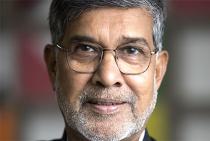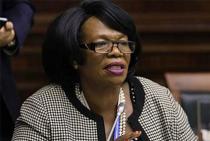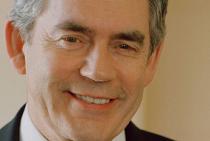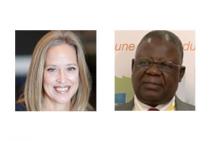Since its invention in ancient Greece more than 2,500 years ago, democracy has depended on rules and institutions that strike a balance between participation and power. The objective is to create a system of governance in which elected leaders bring to bear their knowledge and experience, in order to advance the interests of the people. The rule of law and the separation of powers, guaranteed by a system of checks and balances, are vital. Democracies all over the world are enduring a stress test. If they are to pass, their institutional underpinnings must be reinforced. That requires, first and foremost, an understanding of what those underpinnings are, why they matter, and who is trying to dismantle them. By Alexandra Borchardt
You are here
Results for Op-Ed World Education
Friday 29 November 2019
Oxford, United Kingdom
Tuesday 26 November 2019
New York, USA
From a young age, children must be taught the importance of consent. It’s an integral part of comprehensive sexuality education to empower people with knowledge about their rights. One way to remove taboos around consent is to create safe and interactive spaces to discuss the topic.- By UN Women
Tuesday 24 September 2019
New Delhi, India
On September 24-25, world leaders will attend a United Nations summit in New York to review progress toward the UN’s 17 Sustainable Development Goals. This will be the first UN summit on the SDGs since the adoption of the 2030 Agenda in September 2015. Since then, we have collectively made progress toward a more peaceful, safer, healthier, and more prosperous world. Sadly, however, we are currently on track to miss most of the SDGs and targets related to children – without which the fulfillment of the 2030 Agenda can remain only a distant dream.
Wednesday 20 February 2019
Lusaka, Zambia
Education gives young people the tools they need – from cognitive and social skills to self-confidence – to succeed throughout their lives. Burgeoning youth populations make delivering high-quality education to all particularly urgent. But success will be possible only with a sharp focus on girls and women. Meghan, Duchess of Sussex, speaking in the Pacific islands last October, underscored the added importance of this objective for “women and girls in developing countries.” By Nkandu Luo.
Thursday 27 September 2018
New York, USA
Starting in the late 1940s, an exceptional group of visionaries responded to the devastation of World War II by coming together to build new institutions for a new world. Looking back two decades later, former US Secretary of State Dean Acheson said it was like being “present at the creation.” He was not wrong. The international community had come to a new understanding that prosperity is indivisible and must be shared if it is to be sustained. By Gordon Brown.
Thursday 3 May 2018
Accra, Ghana
Every year on May 3 – World Press Freedom Day – news producers and consumers pause to reflect on the state of global media. This year, as journalists and government officials gather in Ghana for the event’s 25th observance, attention will turn to the myriad pressures and challenges confronting the profession worldwide, and how official and state-sponsored hostility toward the press is threatening democracy. By Leon Willems
Thursday 14 September 2017
New York, USA
“Leadership,” in this case, doesn’t necessarily mean an individual positioned at the top of a government or business hierarchy. Rather, it is defined by actions aimed at improving a community’s wellbeing, and it can come from anyone. We have seen firsthand how the presence of a diverse set of engaged leaders at all levels – educators, parents, students, policymakers, advocates, and others – can make or break efforts by a community or country to maximize opportunities to improve its education system. By Wendy Kopp and Dzingai Mutumbuka
Tuesday 18 April 2017
London, United Kingdom
On April 22, scientists from around the world will mark Earth Day by participating in an unprecedented “March for Science.” The aim of the march will be to “celebrate and defend science at all levels – from local schools to federal agencies.” It is important to understand why the usually sedate community of scientists will take to the streets in a global demonstration of concern.










